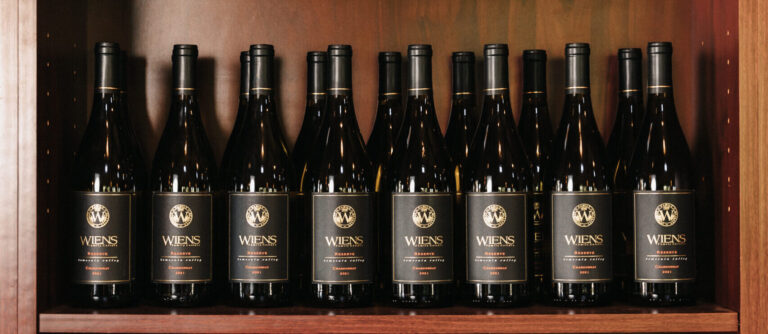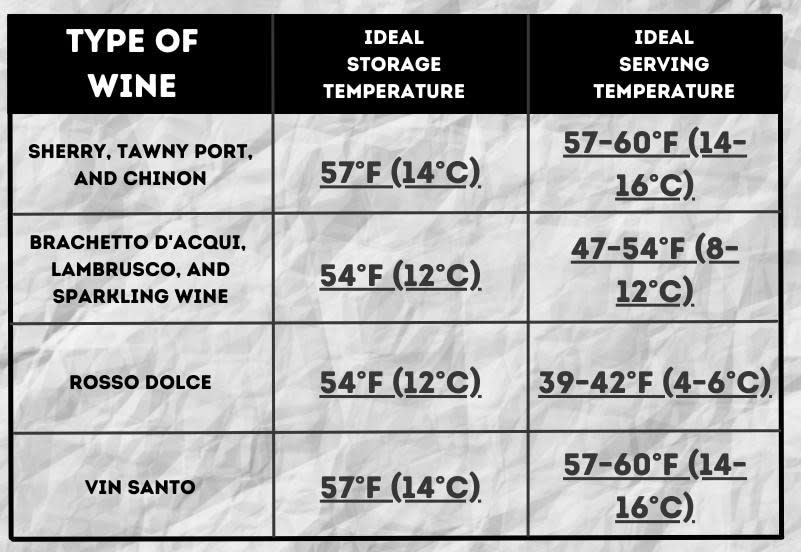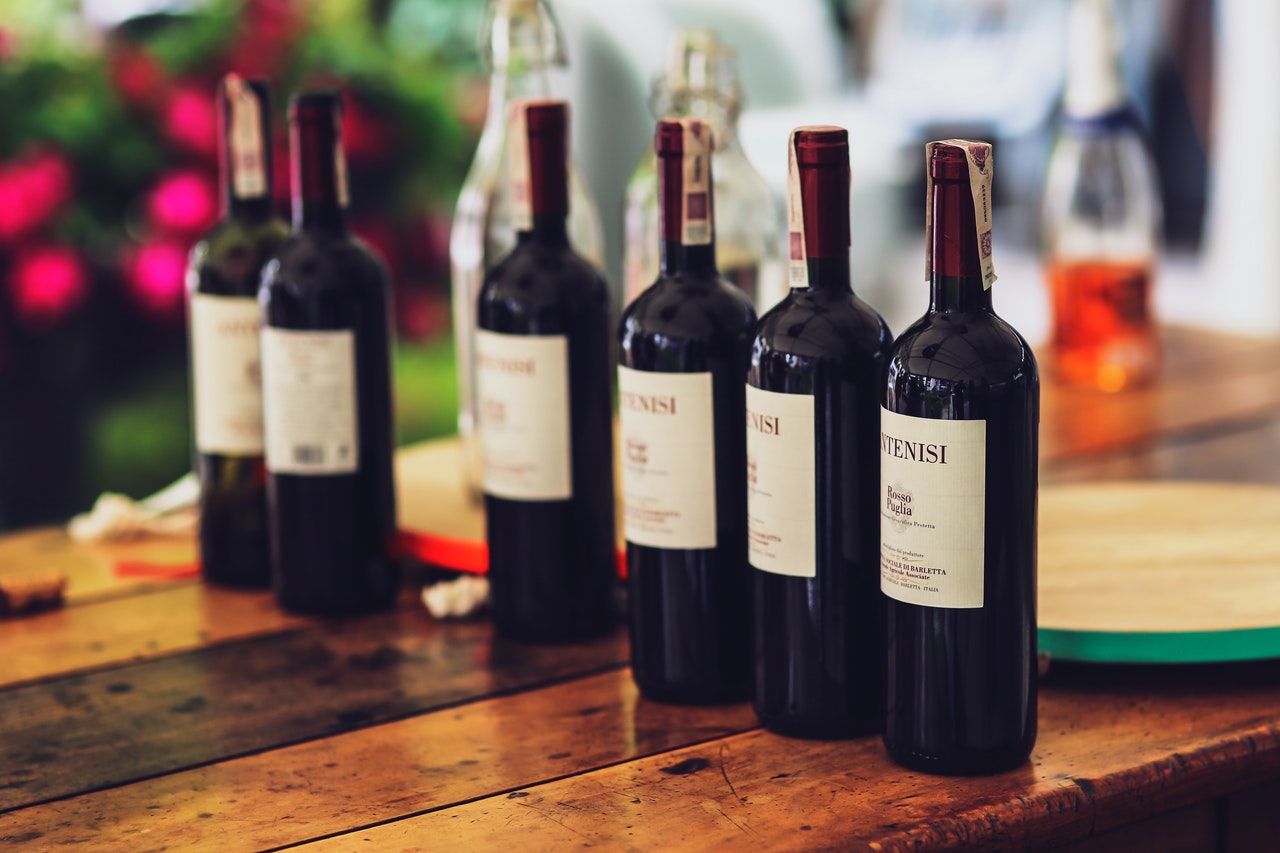Understanding Wine Storage Basics

When it comes to storing wine, there are a few basic principles to keep in mind. Wine is a delicate beverage that can be affected by various environmental factors. Temperature, humidity, and light exposure all play a role in preserving the quality and flavor of wine. It is important to store wine in a cool, dark place, away from direct sunlight and extreme temperature fluctuations. The ideal temperature for wine storage is around 55 degrees Fahrenheit, with a humidity level of about 70%. By understanding these basics, you can ensure that your wine collection stays in optimal condition for enjoying to the fullest.
Storing Wine: What You Need To Know
When it comes to storing wine, there are a few important factors to consider. Firstly, wine should be kept in a cool, dark place to protect it from light and heat. Ideally, the temperature should be around 55 degrees Fahrenheit, with a humidity level of about 70%. It is also crucial to store wine bottles horizontally to keep the cork moist and prevent it from drying out. Additionally, keeping track of the wine’s expiration date and rotating bottles regularly can help maintain their quality and flavor. By following these guidelines, wine enthusiasts can ensure that their collection stays in optimal condition.
Factors Affecting Wine Storage Conditions
There are several factors that can significantly impact wine storage conditions. One of the most crucial factors is temperature. Fluctuations in temperature can cause wine to expand and contract, leading to potential damage and deterioration. Additionally, exposure to direct light can result in the formation of undesirable aromas and flavors in the wine. Humidity levels also play a role, as excessively low humidity can dry out corks, while high humidity can promote mold growth. Finally, vibrations can disturb the sediments in the wine, affecting its quality. Considering and controlling these factors is vital for maintaining the integrity and flavor of your wine collection.
The Role Of Refrigeration In Wine Storage

Refrigeration plays a crucial role in wine storage by helping to maintain the ideal temperature for preserving the wine’s quality. By keeping the wine at a consistent and controlled temperature, refrigeration prevents fluctuations that can lead to spoilage or deterioration. It also helps slow down chemical reactions that can alter the wine’s flavor and aroma. Additionally, refrigeration can be particularly beneficial for white wines and sparkling wines, which are typically best enjoyed when served chilled. Overall, incorporating refrigeration into your wine storage practices is an effective way to ensure your wines age gracefully and maintain their intended characteristics.
Refrigerating Wine: Pros And Cons
When it comes to refrigerating wine, there are several pros and cons to consider.
Pros:
– Refrigeration helps to maintain the wine’s ideal temperature, slowing down chemical reactions and preserving its quality.
– Chilling wine can enhance its flavor, especially for white wines and sparkling wines that are best enjoyed when served cold.
– Refrigerating open wine bottles can significantly delay oxidation reactions, allowing you to enjoy the wine for a longer period.
Cons:
– Refrigeration can dampen the aroma of some wines, particularly those with delicate aromatics.
– If not properly sealed, wine bottles stored in the refrigerator may absorb odors from other food items.
Overall, refrigerating wine offers many advantages, but it’s important to consider the specific characteristics of each wine before deciding to chill it.
Impact Of Temperature On Wine Preservation
The temperature at which wine is stored plays a crucial role in its preservation. Extreme temperature fluctuations can have detrimental effects on the quality and taste of the wine. When exposed to high temperatures, the wine can age prematurely and develop off-flavors. On the other hand, storing wine at very low temperatures can cause the wine to freeze and expand, potentially pushing out the cork and leading to oxidation. It is important to maintain a consistent and optimal temperature for long-term wine storage, typically between 45°F and 65°F (7°C and 18°C), to ensure the wine ages gracefully and retains its desired characteristics.
Ideal Temperature And Humidity Levels For Wine

To ensure optimal preservation, it is important to store wine at the ideal temperature and humidity levels. The recommended temperature range for wine storage is between 45°F and 65°F (7°C and 18°C), with 55°F (13°C) often considered close to perfect. This temperature range helps maintain the wine’s flavor, aroma, and chemical balance. Additionally, it is crucial to maintain a relative humidity level of around 70% to prevent the corks from drying out and the wine from oxidizing. Proper temperature and humidity control are key factors in preserving wine quality and allowing it to age gracefully.
Optimal Wine Storage Conditions
To preserve the quality and flavor of wine, it is crucial to store it under optimal conditions. The ideal temperature for wine storage is between 45°F and 65°F (7°C and 18°C), with 55°F (13°C) often considered the perfect temperature. Maintaining a consistent temperature is essential to prevent the wine from spoiling or aging prematurely. Additionally, it is important to store wine in a dark and vibration-free environment to avoid any disturbances that can affect its aging process. Lastly, humidity levels should be around 70% to prevent the corks from drying out and maintaining a proper seal. Following these optimal storage conditions will ensure that your wine ages gracefully and retains its exquisite flavors and aromas.
Humidity Control For Wine Preservation
Humidity control plays a crucial role in wine preservation. It is widely believed that maintaining a humidity level of around 70% is ideal for wine storage to prevent the corks from drying out and maintaining a proper seal. However, it is important to note that while humidity control is essential, extreme fluctuations in humidity can also negatively impact the quality of the wine. High humidity levels can lead to mold growth and label damage, while low humidity levels can cause cork shrinkage and air leakage. Therefore, investing in a wine fridge with humidity control is recommended to ensure optimal wine preservation.
Common Misconceptions About Refrigerating Wine

One common misconception about refrigerating wine is that any refrigerator can be used for wine storage. However, this is not true. The standard kitchen refrigerator is not suitable for long-term wine storage as it is too cold, with a temperature of around 40°F (4°C). Another misconception is that all wines should be refrigerated. While it is true that white and sparkling wines benefit from being chilled, red wines are typically served at slightly warmer temperatures. It is important to understand the specific temperature requirements for different types of wines to preserve their flavors and aromas effectively.
Debunking Myths About Refrigerating Wine
There are several myths surrounding refrigerating wine that need to be debunked. First, it is important to clarify that not all wines should be refrigerated. While white and sparkling wines benefit from being chilled, red wines are typically served at slightly warmer temperatures. Another common misconception is that any refrigerator can be used for wine storage. However, the standard kitchen refrigerator is too cold for long-term wine storage. It is crucial to understand the specific temperature requirements for different types of wines in order to preserve their flavors and aromas effectively.
Effects Of Incorrect Wine Storage Practices
Storing wine improperly can have detrimental effects on its quality and taste. If exposed to high temperatures, the wine can age prematurely and develop off-flavors. On the other hand, if stored in excessively cold conditions, the wine can become dull and lose its aromas. Incorrect storage practices can also lead to wine oxidation, causing it to taste flat and unappealing. Additionally, storing wine in a place with fluctuating temperatures can cause the cork to expand and contract, leading to leakage and potential spoilage. It is important to follow proper wine storage guidelines to ensure that your wine stays in its best condition.
Wine Refrigeration Vs. Wine Cellars

When it comes to storing your wine, there are two main options to consider: wine refrigeration and wine cellars. Wine refrigeration units, such as wine coolers or wine refrigerators, are designed for short to medium-term storage, making them ideal for everyday wines that you plan to consume within a few years. These units provide temperature control and can keep your wine at the optimal serving temperature. On the other hand, wine cellars are more suited for long-term storage and aging of wines. Custom wine cellars offer a controlled environment with consistent temperature and humidity levels, allowing wines to mature gracefully over time. Ultimately, the choice between wine refrigeration and wine cellars depends on your storage needs and the length of time you plan to store your wines.
Comparing Wine Refrigerators And Wine Cellars
When it comes to comparing wine refrigerators and wine cellars, there are several key differences to consider. Wine refrigerators, also known as wine coolers, are designed for short to medium-term storage and are ideal for everyday wines that you plan to consume within a few years. They provide temperature control and can keep your wine at the optimal serving temperature. On the other hand, wine cellars are more suited for long-term storage and aging of wines. Custom wine cellars offer a controlled environment with consistent temperature and humidity levels, allowing wines to mature gracefully over time. Ultimately, the choice between wine refrigerators and wine cellars depends on your storage needs and the length of time you plan to store your wines.
Choosing The Right Storage Option For Your Wine Collection
When it comes to choosing the right storage option for your wine collection, it’s important to consider your specific needs and budget. If you have a small collection of everyday wines that you plan to consume within a few years, a wine refrigerator or cooler can be a practical and cost-effective choice. These units provide temperature control and can keep your wine at the optimal serving temperature.
On the other hand, if you have a larger collection of high-quality or aging wines, a wine cellar may be the better option. Custom wine cellars offer a controlled environment with consistent temperature and humidity levels, allowing your wines to mature gracefully over time. While they require professional installation and can be more expensive, wine cellars provide the ideal conditions for long-term storage and aging.
Ultimately, the right storage option depends on your storage needs, the length of time you plan to store your wines, and your budget. Whether you choose a wine refrigerator or a wine cellar, proper storage will ensure that your wines are preserved and enjoyed at their best.
Conclusion

In conclusion, properly storing wine is crucial for maintaining its quality and enjoying it at its best. While refrigerating wine can be a practical option for everyday wines that will be consumed within a few years, it’s important to consider the specific storage needs of your collection. Whether you choose a wine refrigerator or a wine cellar, ensuring the right temperature and humidity levels will help preserve your wines and allow them to age gracefully. Remember to follow proper storage practices and consult experts or resources to ensure optimal conditions for your wine collection.
Tips For Properly Storing Your Wine
To ensure that your wine stays fresh and maintains its flavor, follow these tips for proper storage:
- Keep the bottles in a horizontal position: This helps to keep the cork moist and prevents air from seeping into the bottle.
- Store wine in a cool, dark place: Avoid exposure to direct sunlight or high temperatures, as they can age the wine prematurely.
- Maintain a consistent temperature: Aim for a temperature between 45 to 65°F (7 to 18°C) to prevent fluctuations that can harm the wine.
- Control humidity levels: Aim for a humidity level between 50 to 80% to keep the corks from drying out and the labels in good condition.
- Avoid strong odors: Store wine away from strong-smelling substances as wines can easily absorb odors.
By following these tips, you can ensure that your wine is stored properly and ready to be enjoyed whenever you desire.
FAQ About Storing Your Wine Properly
Q: Do you refrigerate wine?
A: It depends on the type of wine.
Q: Should all wines be refrigerated?
A: No, not all wines need to be refrigerated.
Q: How do you know if a wine needs to be refrigerated?
A: Generally, white wines, rosés, and sparkling wines benefit from refrigeration.
Q: Can red wine be refrigerated?
A: Red wines can be refrigerated for short periods, but it is not necessary for most reds.
Q: What is the ideal temperature for storing wine?
A: The ideal storage temperature for most wines is around 55°F (13°C).
Q: How long can I store wine in the refrigerator?
A: Wine can be stored in the refrigerator for a few days to a few weeks, depending on the type.
Q: Should wine be stored upright or on its side?
A: Wine with corks should be stored on its side to keep the cork moist and maintain the seal.
